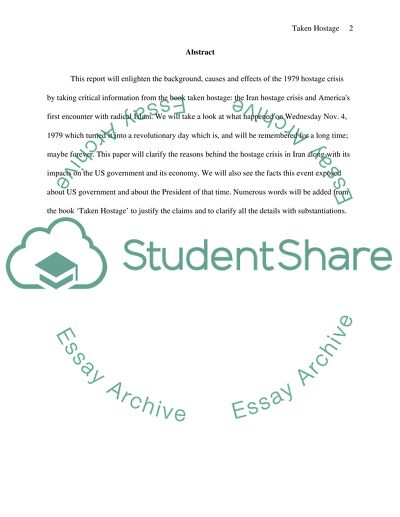Cite this document
(Taken Hostage - Background and Causes of the 1979 Hostage Crisis Book Report/Review, n.d.)
Taken Hostage - Background and Causes of the 1979 Hostage Crisis Book Report/Review. Retrieved from https://studentshare.org/history/1417728-history-essay-reading-and-comprehension-of-the
Taken Hostage - Background and Causes of the 1979 Hostage Crisis Book Report/Review. Retrieved from https://studentshare.org/history/1417728-history-essay-reading-and-comprehension-of-the
(Taken Hostage - Background and Causes of the 1979 Hostage Crisis Book Report/Review)
Taken Hostage - Background and Causes of the 1979 Hostage Crisis Book Report/Review. https://studentshare.org/history/1417728-history-essay-reading-and-comprehension-of-the.
Taken Hostage - Background and Causes of the 1979 Hostage Crisis Book Report/Review. https://studentshare.org/history/1417728-history-essay-reading-and-comprehension-of-the.
“Taken Hostage - Background and Causes of the 1979 Hostage Crisis Book Report/Review”, n.d. https://studentshare.org/history/1417728-history-essay-reading-and-comprehension-of-the.


